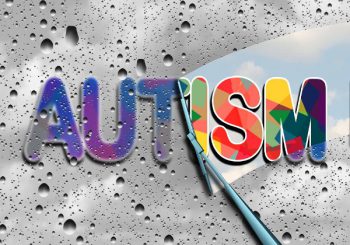Guest Writer for Wake Up World
Many people are aware that the number of cases of autism has been rising over the last few decades, but everyone is still fairly in the dark when it comes to knowing what puts unborn children at increased risk of developing the disorder. In order to better avoid this debilitating neurodevelopment disorder, it is wise to look at the compounding factors that have been strongly associated with increased autism risk.
[pro_ad_display_adzone id=”110028″]
Risk Factors for Autism
With a staggering statistic of 10 – 15% of all babies being born with some kind of neurodevelopment disorder, it’s no wonder we’re seeing autism as a looming epidemic. [1] The following 8 risk factors include both avoidable and sometimes unavoidable issues; but, the first step to protecting your unborn children is to be informed.
1. Mycotoxins
“Mycotoxins” isn’t a term many of us are familiar with yet, but there have been numerous studies on just what these substances are and how they can affect both animals and humans. The latest study which tested American breakfast cereals links mycotoxins found in the food to autism and also puts males at a higher risk for the disorder. [2] [3] So, what is this potential risk factor? Mycotoxins are mold by-products found mostly in grains, coffee, wine, and pork. Even though many studies have been conducted over the years, the ballot is still out on the long term effects of mycotoxins. That doesn’t mean that mycotoxins aren’t a concern, just that they’re something you need to look out for.
2. C-Sections
A new study has stated that babies born via cesarean section rather than more traditional methods have an increased chance of developing autism-related neurodevelopment disorders.[4] This statistic is especially important because of the fact almost one in three babies is born using this method in the United States. The reason why the study has sparked so much controversy is because many people believe that the increased risk can be attributed to babies born by C-Section are being delivered before their due date. On a similar note, medically-induced labor can also increase risk factors for autism spectrum disorders. [5] Even a few weeks can deeply affect a baby’s development, so it is vitally important for every new mother to consider every birthing option before committing to a C-Section.
3. Maternal Antibodies
An unfortunate risk factor for unborn children developing neurodevelopment disorders is something our own bodies create: maternal antibodies. These autoantibodies bind themselves to proteins that affect cognition and other neurological-related aspects of fetal development. As early as 2008, studies linked these autoantibodies to autism, and other studies have consistently found these types of antibodies in children with autism. [6] Scientists say that the next step is to figure out how to separate these antibodies and prevent them from affecting developmental proteins.
4. Placenta Abnormalities
A new study showed that placentas with abnormal structures were prevalent in children who had neurodevelopment issues like autism. Though most agree that it is too early to say that the presence of these structures is a direct cause of autism, many hope that it will become a routine procedure to check for any placental abnormalities at birth in order to help predict whether or not any child will have neurodevelopment disorders. Early intervention could be a crucial step in aiding a child with an autism spectrum disorder. The study also suggests that the placental abnormalities have genetic roots as to the cause. [7]
5. Smoking
Everyone knows the plethora of health issues and diseases that smoking tobacco products can lead to, such as respiratory issues, cancer, and more, but did you know that smoking while pregnant can also lead to autism in children? Women who choose to smoke while pregnant have an increased chance of birthing a child with Asperger’s (an autism spectrum disorder). [8] Though there is no direct link between smoking and autism, there is strong evidence for the link between smoking and Asperger’s, which is just another reason not to smoke while pregnant.
6. Air Pollution
Even though we know that air pollution can affect asthma and even the size of organs over time, new evidence suggests that certain particles can also lead to increased risks for autism. [9] Specialists do remain hopeful about this development, however. By reducing air pollution indoors and doing our part to help reduce outdoor air pollution as well, we may contribute to an overall healthier society.
7. Endocrine Disruptors
Endocrine disruptors are something I talk a lot about because they’re so prevalent and so harmful. Now, new research has found that males are four times more likely than females to be diagnosed with autism spectrum disorders, which leads many specialists to believe that these disorders are hormone related. [10] This is where endocrine disruptors come into play. Endocrine disruptors can affect chemicals that are vital to the thyroid and other aspects of development.
8. Vaccines
The link between vaccines and autism is unnerving for some. Debating for vaccine safety often results in being labeled as an ‘anti-vaxxer,’ and parents are terrified to voice their concern for the large number of vaccinations in fear of being ostracized. All studies finding no causal link between vaccines and autism are consistently pumped out by the mass media, swaying public opinion with a one-sided view on the actual science that’s out there. Unfortunately, almost all media outlets have sponsors with ties to the pharmaceutical industry, so any news story showing a link can be bad for monetary interest. One study from 2012 in the Neurochemical Researcher found a link between thimerosal in vaccines and glutamate brain damage. [9] The Journal of Inorganic Chemistry in 2011 found that “the correlation between Aluminum [an adjuvant] in vaccines and [autism] may be causal.” [10] While vaccines themselves have the potential to save lives, we have to look deeper into the literature and see what research – not bound by pharmaceutical interest – is being conducted on the ingredients in vaccines and their relation to neurological development.
One Final Thought
In order to protect the ones you love from developing autism, there may be positive steps you can take. Whether it’s avoiding endocrine disruptors or maintaining a cleaner environment in your home’s air quality, do what you can.
Sources and References:
- Grossman, Elizabeth. What Are We Doing to Our Children’s Brains? ENSIA. 2015.
- Ryu, Dojin and Hyun Jung Lee. Significance of Ochratoxin A in Breakfast Cereals from the United States. American Chemical Society. 2015.
- Joiner, James. Are Mycotoxins the New Gluten? The Daily Beast. 2015.
- Curran EA, O’Neill SM, Cryan JF, Kenny LC, Dinan TG, Khashan AS, Kearney PM. Research review: Birth by caesarean section and development of autism spectrum disorder and attention-deficit/hyperactivity disorder: a systematic review and meta-analysis. J Child Psychol Psychiatry. 2015 May;56(5):500-8. doi: 10.1111/jcpp.12351. Epub 2014 Oct 27.
- Seaman, M. Andrew. Inducing, Augmenting Labor May be Tied to Autism. Reuters. 2013.
- Yong, Ed. Maternal Antibodies Linked to Autism. The Scientist. 2013.
- Rowan, Karen. Autism Linked to Placenta Abnormalities. My Health News Daily. 2013.
- Daily Mail. Women Who Smoke During Pregnancy ‘May Be More Likely to Have a Child with Asperger’s Syndrome’. Daily Mail. 2012.
- Harvard School of Public Health. Fine Particulate Air Pollution Linked with Increased Autism Risk. Harvard College. 2014.
- Betts, Kellyn S. Clues to Autistic Behaviors: Exploring the Role of Endocrine Disruptors. EHP. 2014.
- Duszczyk-Budhathathoki M, Olczak M, Lehner M, Majewska MD. Administration of thimerosal to infant rats increases overflow of glutamate and aspartate in the prefrontal cortex: protective role of dehydroepiandrosterone sulfate. Neurochem Res. 2012 Feb;37(2):436-47. doi: 10.1007/s11064-011-0630-z.
- Lucija Tomljenovic, Christopher A. Shaw. Do aluminum vaccine adjuvants contribute to the rising prevalence of autism? Journal of Inorganic Biochemistry.
Originally published at Global Healing Center and reproduced here with permission.
Recommended articles by Dr. Edward Group:
- What are Whole Foods and Why are They Important for Health?
- Top Vitamin C Benefits for the Skin
- Wim Hof Breathing: 6 Benefits for Body and Mind
- Camu Camu: The Next Great Superfood
- Emotional Freedom Technique (EFT): 5 Benefits and How To Do It
- Enokitake Mushrooms: 7 Benefits of this Superfood
- Here are 7 Reasons to Try a Cleanse
- 3 Scientifically Proven Ways Meditation Boosts Your Immune System
- What is Candida? Understanding Yeast Imbalance
- Acerola Cherry: 8 Benefits of this High-C Tropical Super Fruit
About the author:
Dr. Edward F. Group III (DC, ND, DACBN, DCBCN, DABFM) founded Global Healing Center in 1998 with the goal of providing the highest quality natural health information and products. He is world-renowned for his research on the root cause of disease. Under his leadership, Global Healing Center earned recognition as one of the largest natural and organic health resources in the world. Dr. Group is a veteran of the United States Army and has attended both Harvard and MIT business schools. He is a best-selling author and a frequent guest on radio and television programs, documentary films, and in major publications.
Dr. Group centers his philosophy around the understanding that the root cause of disease stems from the accumulation of toxins in the body and is exacerbated by daily exposure to a toxic living environment. He believes it is his personal mission to teach and promote philosophies that produce good health, a clean environment, and positive thinking. This, he believes, can restore happiness and love to the world.
For more, please visit Global Healing Center.
[pro_ad_display_adzone id=”110027″]








